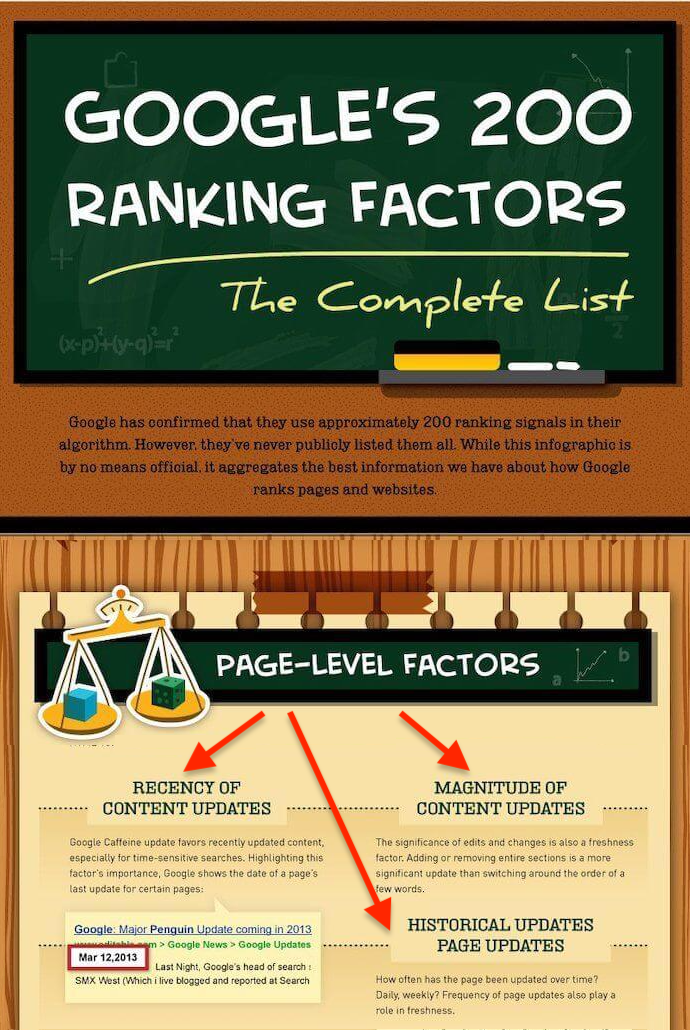Discover the key signs that indicate it is time to update your SEO plan and how to stay ahead.

Image courtesy of via DALL-E 3
Table of Contents
Welcome to the world of SEO! Have you ever wondered how websites show up at the top when you search for something on the internet? That’s all thanks to SEO, which stands for Search Engine Optimization. In this blog post, we will dive into the importance of having a solid SEO plan for your blog or website, and why knowing when and why to update it can make a big difference in getting more visitors to your site.
What is SEO?
SEO is like a secret code that websites use to make sure search engines like Google find them easily. By using specific keywords and optimizing their content, websites can rank higher on search engine results pages and get seen by more people looking for information online.
Why is SEO Important?
Having a strong SEO plan is super important because it helps your website get noticed in a sea of other sites. Think of it like a treasure map – the better your map (SEO plan), the easier it is for others to find the treasure (your website)! With good SEO, you can attract more visitors, increase your website traffic, and grow your online presence.
Understanding Your Current SEO Plan
What is an SEO Plan?
An SEO plan is like a roadmap that helps your website show up on search engines like Google when people search for certain keywords related to your content. It includes things like using the right keywords, creating quality content, and building links to your site.
How to Evaluate Your SEO Plan
If you want to know if your SEO plan is working well, there are a few simple steps you can take. First, check how much traffic your website is getting. If more people are visiting, it’s a good sign. You can also see where your website ranks on search engine results pages (SERPs). The higher you rank, the more visible your site is to potential visitors.
When to Update Your SEO Plan
In the world of SEO, it’s essential to keep your strategies up-to-date to ensure your website continues to rank high in search engine results. But how do you know when it’s time to update your SEO plan? Let’s explore some key indicators that signal it’s time for a refresh.
New Website Changes
If you’ve recently undergone a website redesign or made significant updates to your site’s structure, it’s crucial to revisit your SEO plan. Changes in the layout, content, or functionality of your website can impact how search engines crawl and index your pages. By updating your SEO plan to align with these changes, you can maintain your website’s visibility and search rankings.
Algorithm Changes
Search engines like Google frequently update their algorithms to deliver more relevant and accurate search results. These algorithm updates can impact how your website is ranked, potentially affecting your SEO performance. It’s essential to stay informed about these changes and adjust your SEO plan accordingly to ensure your website remains optimized for the latest search trends.
Why Updating SEO Matters
Have you ever wondered why some websites appear at the top of search engine results while others are harder to find? It all comes down to SEO, which helps websites get noticed by more people. By updating your SEO plan regularly, you can stay ahead of the competition. Think of it like a race – if you want to be in the lead, you need to keep moving forward. Updating your SEO helps your website stay visible and competitive in the digital world.

Image courtesy of www.singlegrain.com via Google Images
Adapting to New Trends
Do you know that the way people search for information online is constantly changing? As technology evolves, so do search behaviors. Updating your SEO plan allows you to adapt to these new trends and ensure that your website remains relevant. It’s like keeping up with the latest fashion or trends in school – you want to be in style and be seen by your peers. By staying current with SEO updates, you make sure that your website is easily found by those searching for what you have to offer.
How to Update Your SEO Plan
In order to keep your website ranking high on search engines and attract more visitors, it’s essential to update your SEO plan regularly. Here are some simple steps to guide you through the process:
Research New Keywords
Researching new keywords is crucial for attracting the right audience to your website. Start by using keyword research tools to identify trending and relevant keywords related to your content. Look for long-tail keywords that have lower competition but higher search volume to increase your chances of ranking better.
Optimize Content
After identifying new keywords, it’s time to optimize your existing content. Update your website content by incorporating the new keywords naturally within your articles, blogs, and meta descriptions. Ensure that your content remains engaging and informative to keep visitors interested and coming back for more.
Tools for Updating Your SEO Plan
Keyword research tools are essential for finding the right keywords to optimize your website content. These tools help you discover what people are searching for online, allowing you to tailor your content to match popular search queries. Examples of popular keyword research tools include Google Keyword Planner, SEMrush, and Ahrefs.

Image courtesy of www.marketingprofs.com via Google Images
Analytics Tools
Analytics tools play a crucial role in tracking the performance of your website and SEO efforts. These tools provide valuable insights into website traffic, user behavior, and conversion rates. By analyzing this data, you can identify areas for improvement and make informed decisions to optimize your SEO strategy. Some widely used analytics tools include Google Analytics, Moz, and HubSpot.
Common Challenges and Solutions
One common issue that website owners face after updating their SEO plan is seeing little to no increase in website traffic. This can be frustrating, but there are several steps you can take to address this problem. Firstly, ensure that the keywords you are targeting are relevant to your content and are being used appropriately. Conduct a thorough keyword research to identify the most valuable keywords for your website.
Another solution is to analyze your website’s metadata, such as title tags and meta descriptions, to ensure they are compelling and accurately represent your content. Additionally, consider updating your website’s design and user experience to make it more appealing and easy to navigate, which can help improve user engagement and ultimately boost traffic.
Staying Up-to-Date with Algorithm Changes
Search engines like Google frequently update their algorithms, which can impact how websites are ranked in search results. It’s essential to stay informed about these changes and adapt your SEO plan accordingly. One solution is to follow reputable SEO blogs and news sources that regularly report on algorithm updates and industry trends.
Another helpful practice is to regularly monitor your website’s performance using analytics tools. By tracking key metrics like website traffic, bounce rate, and keyword rankings, you can quickly identify any negative impacts from algorithm changes and make adjustments to your SEO strategy as needed.
Reviewing and Monitoring Your Updated SEO Plan
After updating your SEO plan, it’s crucial to regularly review and monitor its performance to ensure that your website continues to appear in search engine results and attract visitors. Here are some tips on how to effectively track and adjust your updated SEO plan:

Image courtesy of firstpagesage.com via Google Images
Tracking Performance
One way to monitor the success of your updated SEO plan is by tracking key metrics such as website traffic, keyword rankings, and conversion rates. You can use tools like Google Analytics to keep a close eye on how your website is performing and whether the changes you’ve made are having a positive impact.
Making Ongoing Adjustments
SEO is not a one-time fix, but an ongoing process that requires constant attention and adjustment. As search engine algorithms evolve and new trends emerge, it’s essential to periodically review and tweak your SEO plan to stay relevant and competitive. By regularly updating your keywords, optimizing your content, and staying informed about algorithm changes, you can ensure that your website remains visible and accessible to your target audience.
Conclusion
In conclusion, updating your SEO plan is crucial for the success of your website or blog. By regularly revisiting and refreshing your SEO strategies, you can ensure that your content remains visible and relevant to your target audience. Remember, search engine algorithms are constantly evolving, and staying ahead of the curve is key to maintaining your online presence.
Key Takeaways
1. SEO stands for Search Engine Optimization and helps websites get seen by more people.
2. A strong SEO plan is essential for increasing visitors to your website.
3. Watch out for signals like website changes and algorithm updates that indicate when to update your SEO plan.
4. Updating SEO helps you stay competitive and adapt to new search trends.
5. Research new keywords and optimize your content regularly to keep your SEO plan effective.
6. Use tools like keyword research tools and analytics to aid in updating your SEO plan.
7. Address common challenges like low traffic with solutions such as staying informed about algorithm changes.
8. Review and monitor the performance of your updated SEO plan to make ongoing adjustments as needed.
By following these guidelines and staying proactive in keeping your SEO plan up to date, you can enhance your online visibility and attract more visitors to your website.
FAQs
As you learn more about updating your SEO plan, you might have some questions. Here are answers to common queries that can help you navigate this process:
How Often Should I Update My SEO Plan?
It’s a good idea to review and update your SEO plan regularly, ideally every 6 to 12 months. Search engine algorithms change frequently, and staying on top of these updates can ensure that your website remains visible to your target audience. Additionally, monitoring the performance of your current SEO plan and making adjustments as needed can help you stay ahead of your competitors.
Can I Update SEO by Myself?
Updating your SEO plan is something that you can certainly do on your own. There are many resources available online to help you understand SEO best practices and how to implement them on your website. However, if you’re unsure about where to start or if you encounter challenges along the way, you may want to consider consulting with an SEO expert for guidance and support.







